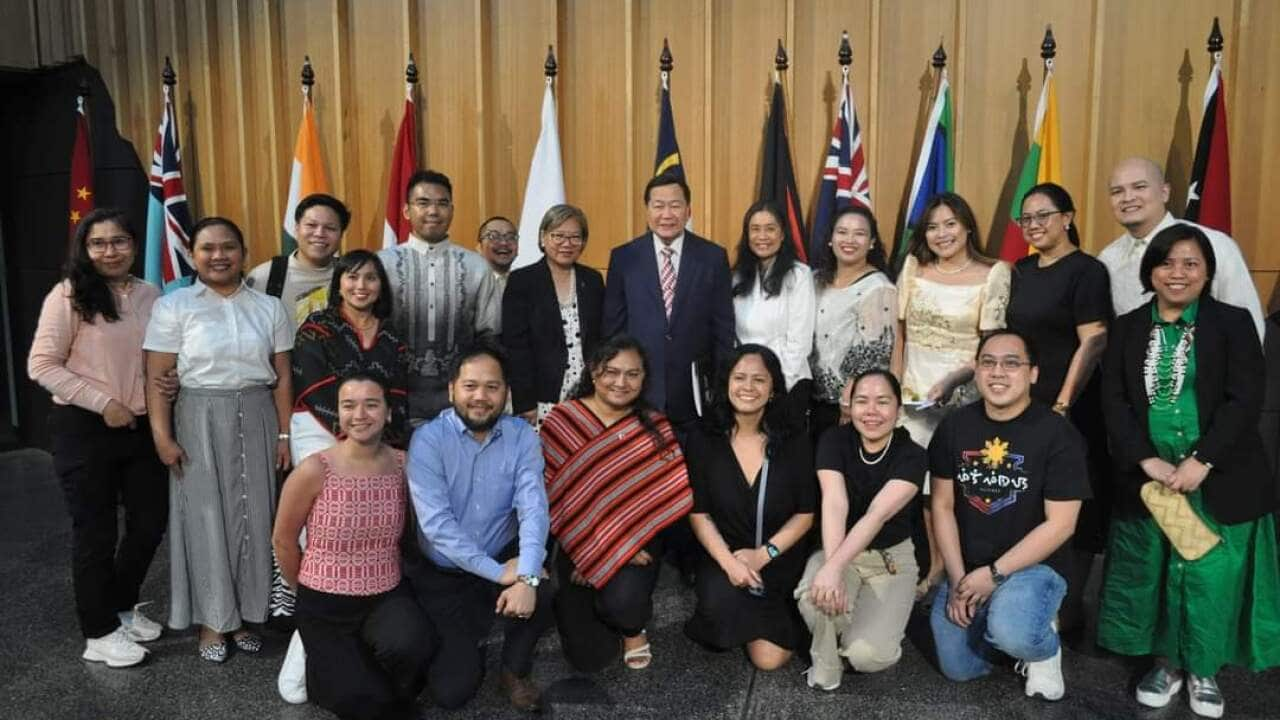Key Points
- The ANU Philippines Institute was launched at the Hedley Bull Lecture Theatre in Canberra on 10 November.
- Retired Hon Justice Antonio Carpio, the keynote speaker at the event, gave a public lecture about the South China Sea dispute.
- Members of the diplomatic corps, academics and students, DFAT officials and members of the Philippine community in the ACT attended the launch.
Aiming to become a global leading research institution focused on the Philippine economy and society, the Australian National University (ANU) officially opened its Philippines Institute at the Hedley Bull Lecture Theatre at the ANU campus in Canberra, ACT on 10 November.
The newly minted institute hopes to accelerate Filipino research talents and inform policy discussions between the Philippines and Australia and is part of the strategic partnership deliverables, signed by Prime Minister Anthony Albanese and Philippine President Ferdinand Marcos Jr in September.
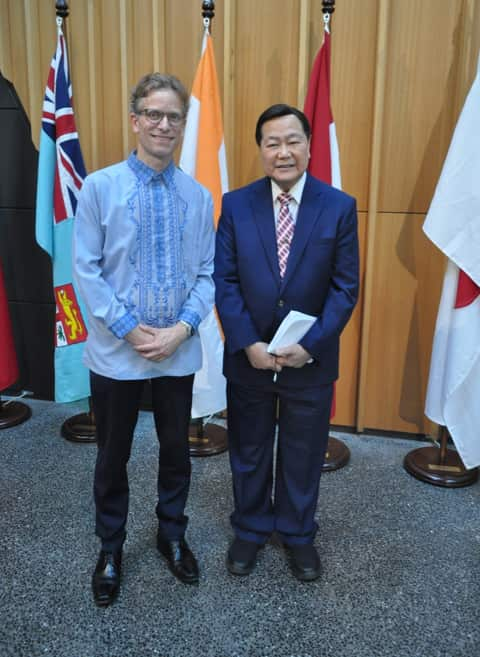
ANU Philippines Institute inaugural Director Björn Dressel and retired Hon Justice Antonio T Carpio at the launch of ANU Philippines Institute Credit: Daniel Delena
It will also further strengthen collaboration between the Philippines and Australia and explore new opportunities and address shared challenges to respond to changing dynamics in the region.
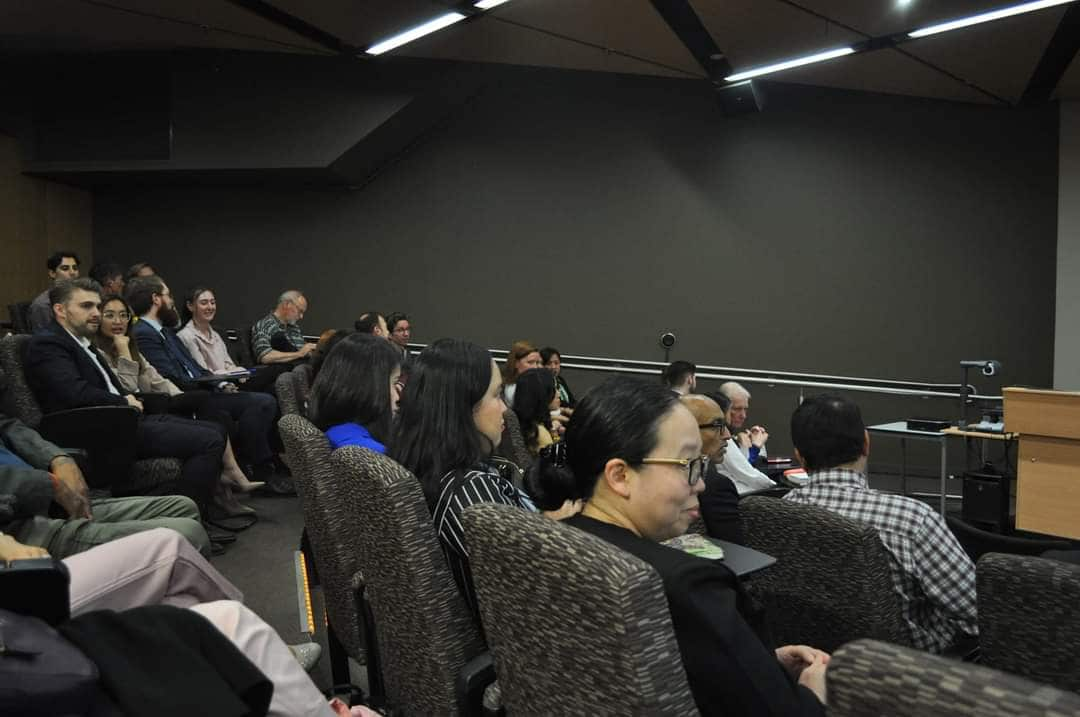
Diplomats, academics, students and members of the Philippine community attended the launch of ANU Philippines Institute at the Hedley Bull Lecture Theatre at the Australian National University campus in Canberra, ACT Credit: Daniel Delena
“With over 400,000 Australians having Filipino heritage and at least 5,000 of them here in Canberra, we want to connect and involve them in our initiatives in the years to come,” Dressel said.
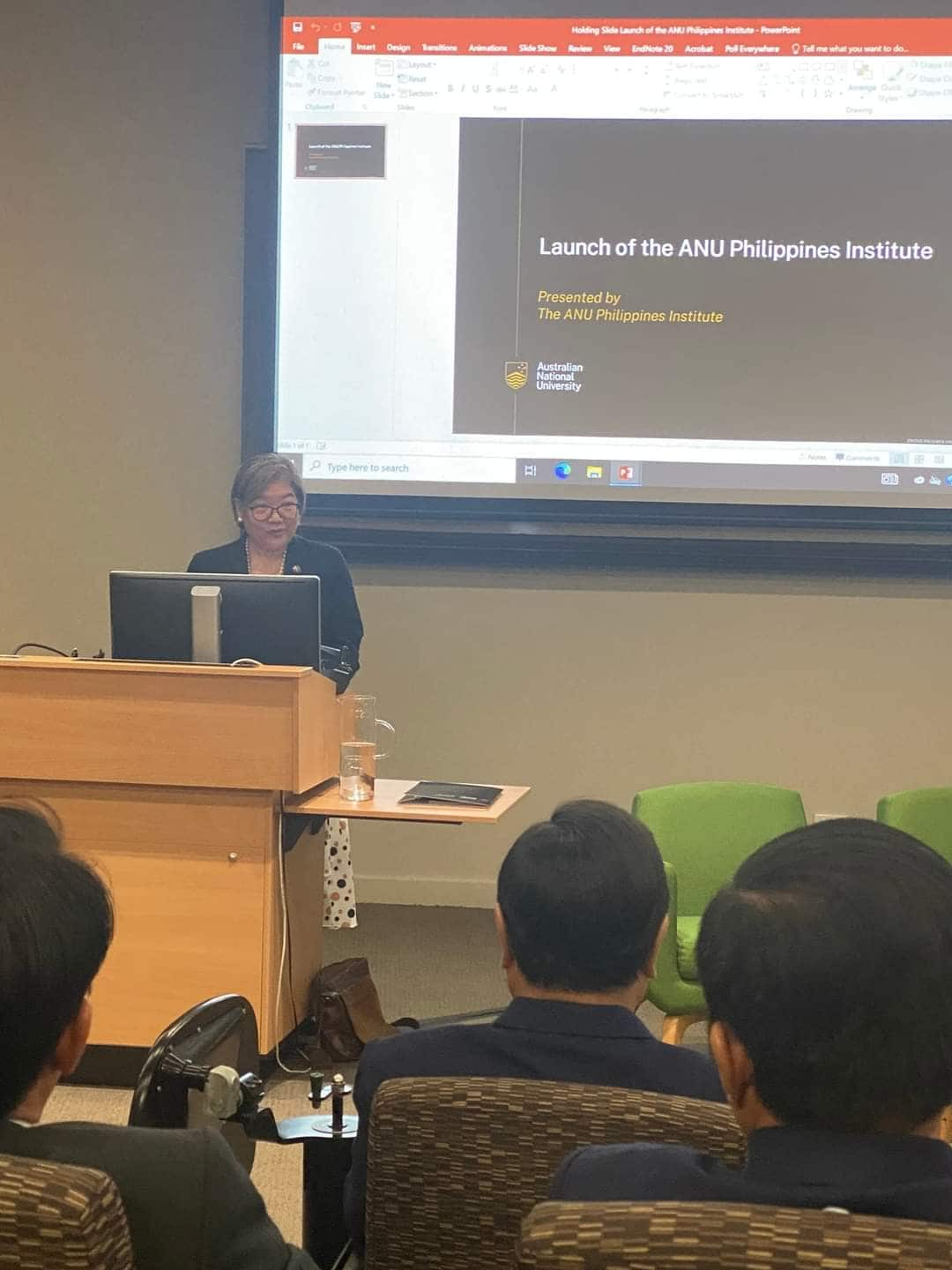
Ambassador Ma Hellen De La Vega gave some remarks at the launch of ANU Philippines Institute. Credit: Daniel Delena
“This will promote Philippine-related research and expertise among ANU scholars and strengthen linkages and networks between academic institutions, interest groups and the policy community to widen connections with the Asia Pacific region,” De La Vega said.
Heads of Missions from Indonesia, Myanmar, Singapore and Vietnam, ANU academics and students, DFAT officials and members of the Philippine community attended the event.
The Philippines Institute is part of the network of institutes and centres within the ANU College of Asia and the Pacific which advances Australia’s engagement and understanding of the Asia Pacific region.
Shedding light on the South China Sea dispute
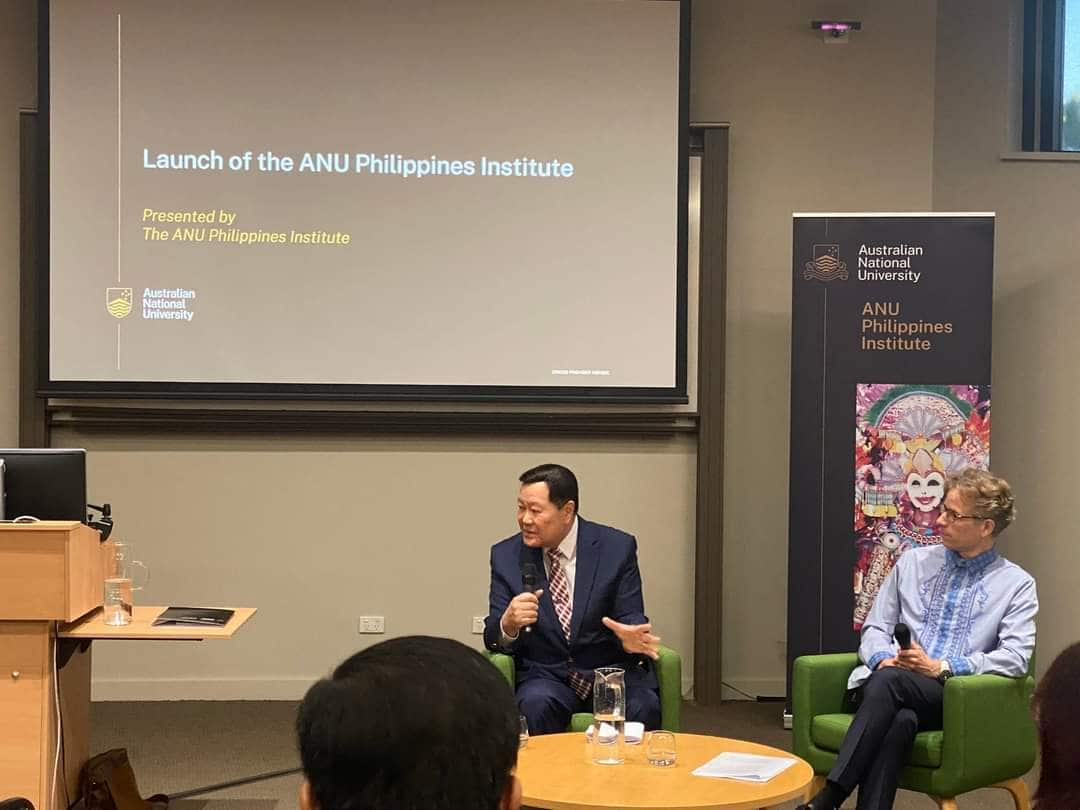
Retired Hon Justice Antonio Carpio gave a public lecture at the launch of ANU Philippines Institute. Credit: Daniel Delena
In his talk, Carpio said the maritime and territorial dispute in the South China Sea is the most important foreign policy issue the Philippines is facing today.
Claimants such as Brunei, China, Indonesia, Malaysia, the Philippines, Taiwan and Vietnam are competing over various zones in the South China Sea with estimated 11 billion barrels of untapped oil and 190 trillion cubic feet of natural gas.
Under the United Nations Convention of the Law of the Sea, claimant countries should have freedom of navigation through exclusive economic zone in the sea and are not required to notify claimants of military activities.
But this is under threat with China’s strong presence in the area, constructing ports, military installations and airstrips and constantly patrolling the disputed zones.
Carpio hopes the international community including Australia stands by and supports the judgement of the international tribunal in The Hague in 2016, which favoured the Philippines claims of various zones in the South China Sea such as the Spratly Islands.
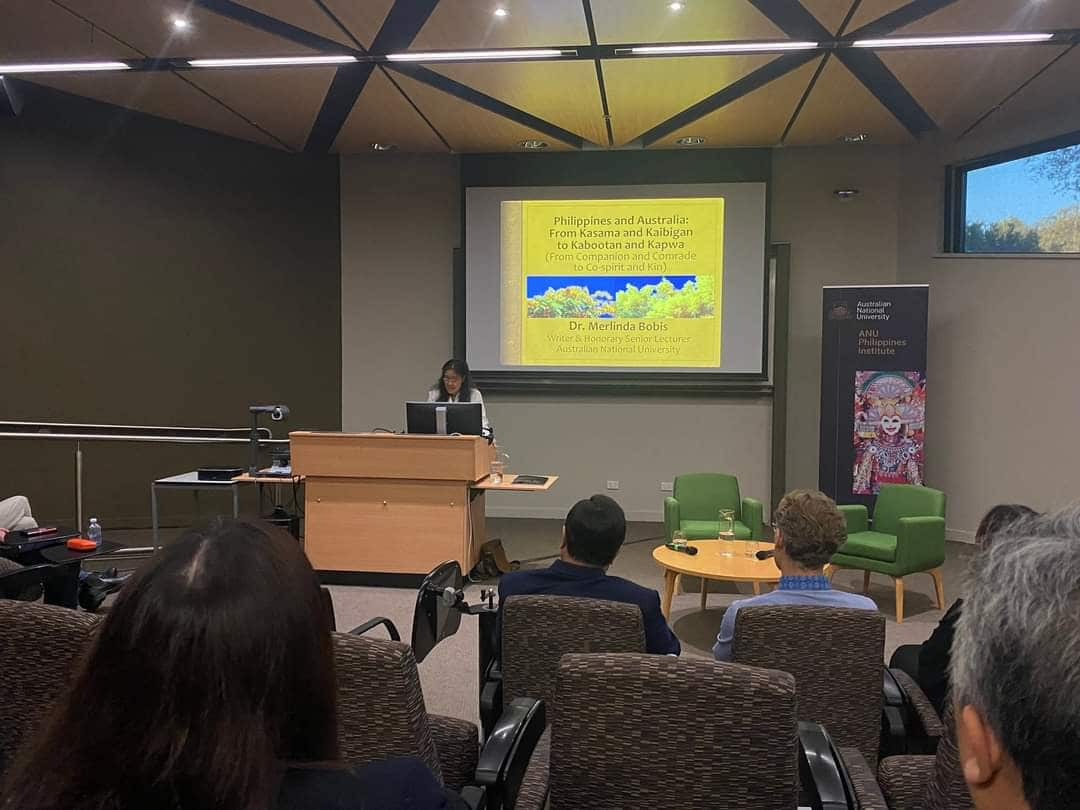
Dr Merlinda Bobis’s presentation at the launch of ANU Philippines Institute Credit: Daniel Delena
Share
